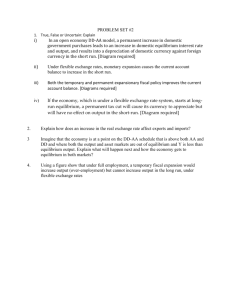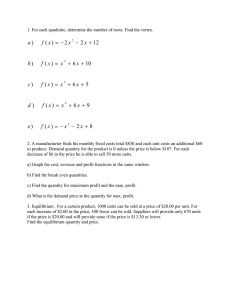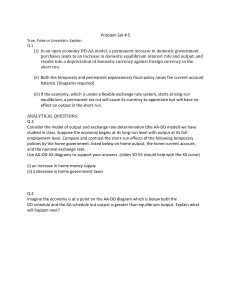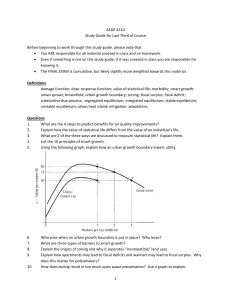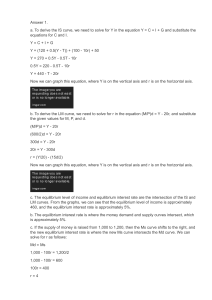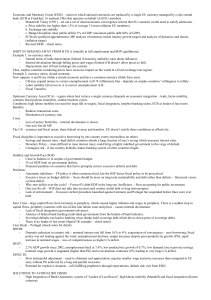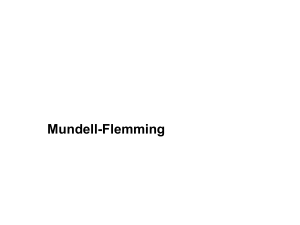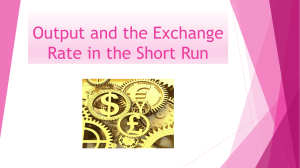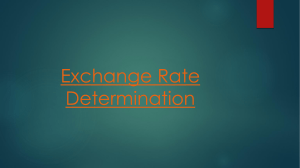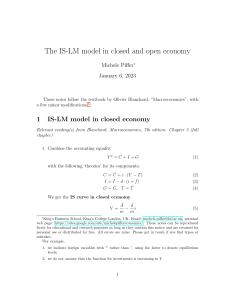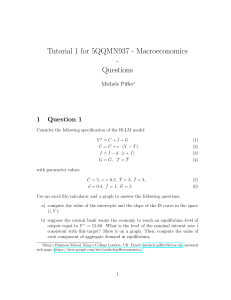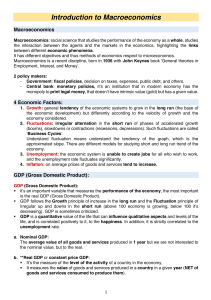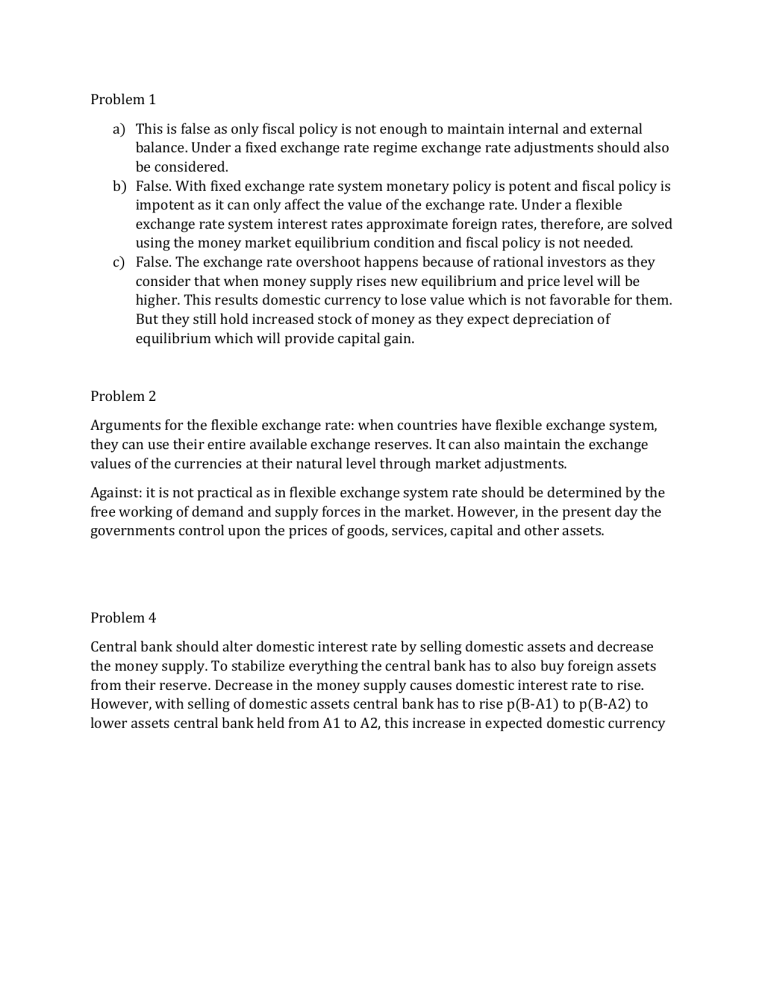
Problem 1 a) This is false as only fiscal policy is not enough to maintain internal and external balance. Under a fixed exchange rate regime exchange rate adjustments should also be considered. b) False. With fixed exchange rate system monetary policy is potent and fiscal policy is impotent as it can only affect the value of the exchange rate. Under a flexible exchange rate system interest rates approximate foreign rates, therefore, are solved using the money market equilibrium condition and fiscal policy is not needed. c) False. The exchange rate overshoot happens because of rational investors as they consider that when money supply rises new equilibrium and price level will be higher. This results domestic currency to lose value which is not favorable for them. But they still hold increased stock of money as they expect depreciation of equilibrium which will provide capital gain. Problem 2 Arguments for the flexible exchange rate: when countries have flexible exchange system, they can use their entire available exchange reserves. It can also maintain the exchange values of the currencies at their natural level through market adjustments. Against: it is not practical as in flexible exchange system rate should be determined by the free working of demand and supply forces in the market. However, in the present day the governments control upon the prices of goods, services, capital and other assets. Problem 4 Central bank should alter domestic interest rate by selling domestic assets and decrease the money supply. To stabilize everything the central bank has to also buy foreign assets from their reserve. Decrease in the money supply causes domestic interest rate to rise. However, with selling of domestic assets central bank has to rise p(B-A1) to p(B-A2) to lower assets central bank held from A1 to A2, this increase in expected domestic currency return on foreign assets offsets the increase in domestic interest rates and leaves the exchange rate unchanged.
